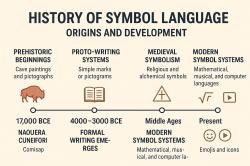Which country was the first to introduce old age pensions?
The first country to introduce old age pensions in a systematic and comprehensive manner was Germany. This historic development occurred in the late 19th century. In 1889, under the leadership of Chancellor Otto von Bismarck, Germany enacted a social insurance program that included a state-funded pension system for elderly citizens. This program, often referred to as the "Bismarck model," laid the foundation for modern social security systems.
The German old age pension system provided financial support to eligible citizens who had reached a specific age, typically 70 years or older. The program was funded through contributions from workers, employers, and the government. It marked a significant milestone in the provision of social welfare benefits, as it aimed to address the financial challenges faced by elderly individuals and reduce poverty among the elderly population.
The success of Germany's old age pension system served as a model for other countries around the world. Over time, many nations developed their own social security and pension programs to provide financial support to their elderly citizens, contributing to the evolution of social welfare systems globally.
Pioneering Old Age Pensions: The First Country to Introduce Them
Germany was the first country to introduce old age pensions in 1889. The program was designed by Chancellor Otto von Bismarck, who was motivated by a number of factors, including a desire to reduce poverty among the elderly, to increase social cohesion, and to create a more loyal working class.
The German old age pension program was funded by contributions from workers and employers, and it provided a modest benefit to all workers who reached the age of 70. The program was a success, and it was copied by many other countries in the late 19th and early 20th centuries.
Historical Milestone: The Inauguration of Old Age Pensions by a Nation
The inauguration of old age pensions by a nation was a historical milestone because it marked a shift from the traditional view of the elderly as being solely responsible for their own well-being to a view of the elderly as being entitled to support from society.
The introduction of old age pensions also had a significant impact on the lives of the elderly. Prior to the introduction of old age pensions, many elderly people lived in poverty and were forced to rely on charity or on the support of their families. The introduction of old age pensions provided a safety net for the elderly and helped to improve their quality of life.
Social Security Origins: The Birthplace of Old Age Pensions
Old age pensions are the foundation of modern social security systems. Social security systems are designed to provide financial security to individuals and families in the event of retirement, disability, unemployment, or death.
Social security systems are funded by contributions from workers and employers, and they provide a variety of benefits, including retirement benefits, disability benefits, survivor benefits, and unemployment benefits.
The introduction of old age pensions in Germany in 1889 was a watershed moment in the history of social security. The German old age pension program was the first of its kind, and it served as a model for other countries around the world.
Today, social security systems are in place in most countries around the world. Social security systems play a vital role in providing financial security to individuals and families, and they help to reduce poverty and inequality.













